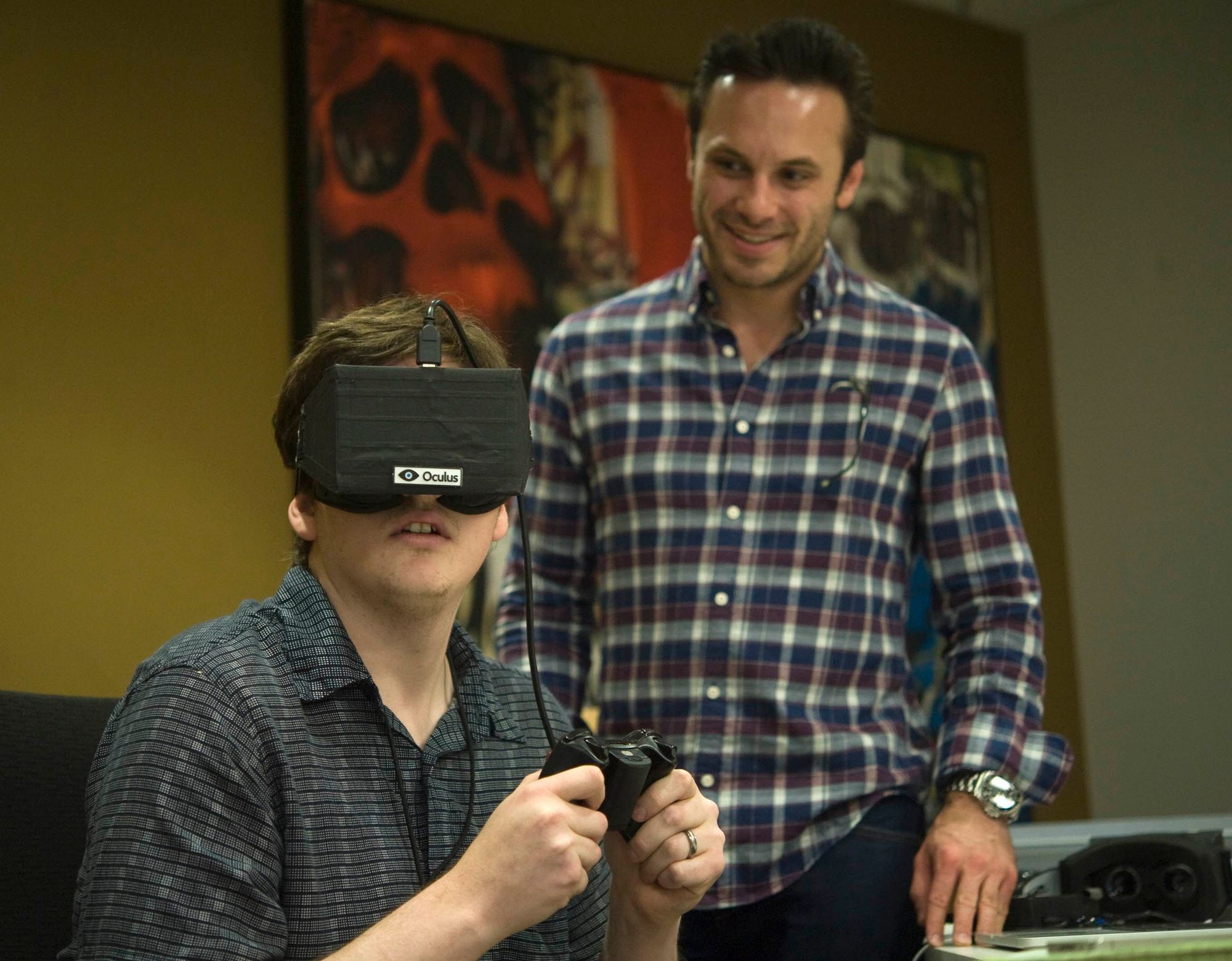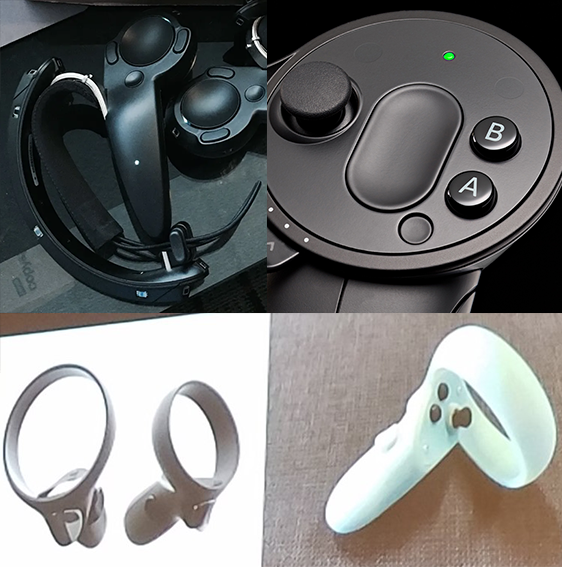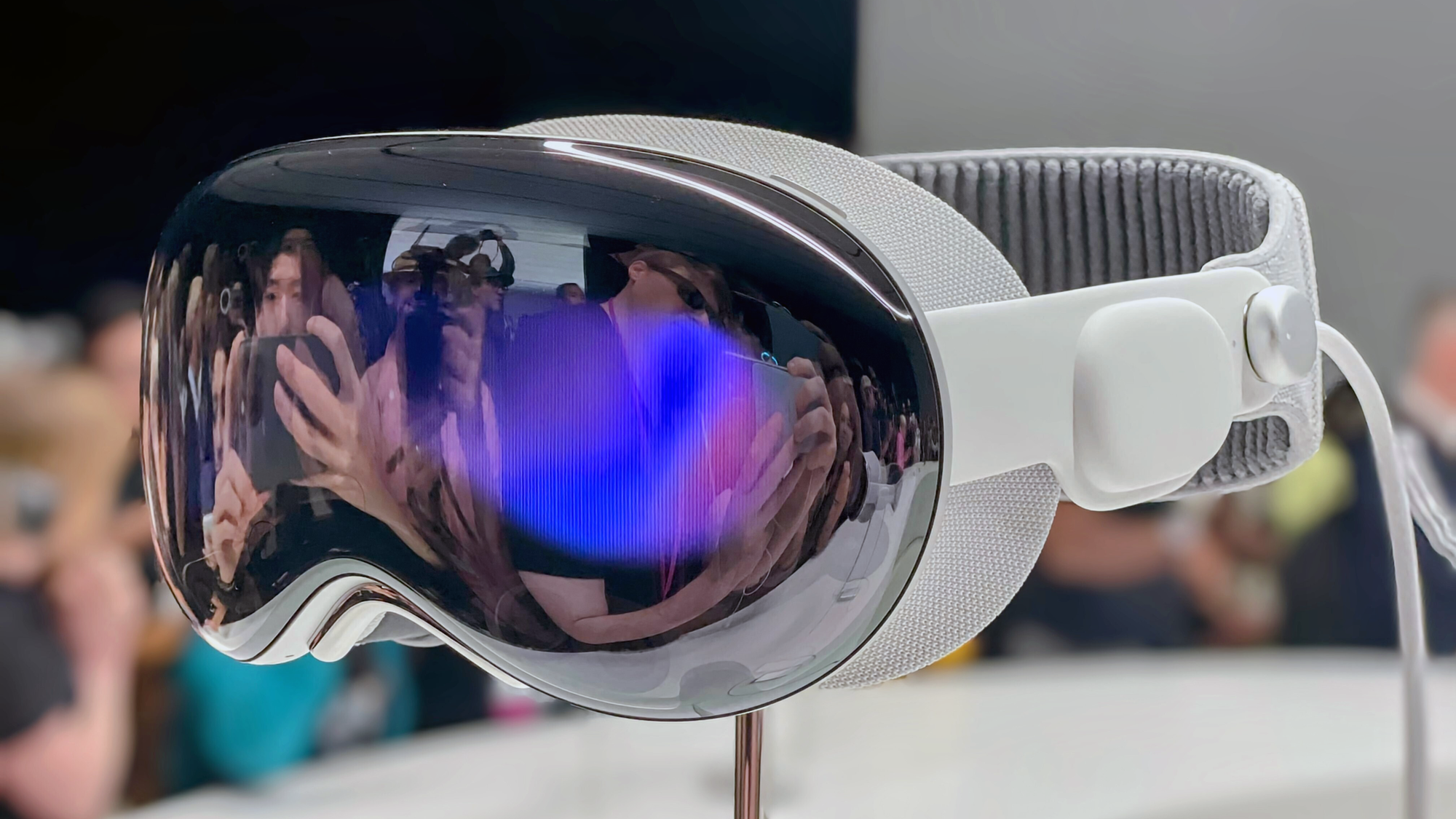Mac vs. PC
iPhone vs. Android
Vision vs. Quest
This is happening. I know it doesn’t seem real and you don't believe me yet but, yes, this is happening. A conversation could be coming to your home in the next five years and it is probably as unavoidable as those previous ones:
Are you on a Meta Quest or do you have Apple Vision?
Google chickened out, Microsoft got distracted, and it's totally understandable if you lost interest in VR when they did. It's okay, we all accidentally click on Business Insider or Forbes links from time to time. Now I'll freely admit I might've jumped the gun with the question in this headline. I also acknowledge the historical precedence of an open platform supported by multiple manufacturers growing parallel to a closed one. Yes, Google might still be resurgent with Android, powered by Owlchemy's insights and Samsung's hardware, and other companies might surprise with a novel strategy too. But, right now, Apple just showed up to VR in a very big way and validated almost all the most forward-thinking work at its fastest-moving competitor.
This is happening.
Analog Concerns

For the existing fans of VR gaming, whether you're spending time in a PC-based headset, PSVR, or Quest, I know you've probably got some notions about Apple and its (lack of) commitment to what you like to spend your money on most. Lets balance that legitimate concern by examining where Apple is and what the company potentially loses by leaving controller-based VR and even traditional gaming experiences out of Vision Pro's picture.

Apple's main operating systems already do a really good job pairing to modern gaming controllers and visionOS could one day make this sync process go even smoother. The just-announced visionOS 1.0 is not even one day old yet. It's still gestating, and Apple's known for updating hardware with significant new features years after initial release. The iPhone launched without an App Store and they sold phones anyway. Vision Pro can launch without analog sticks and still do fine. And, again, the headset isn't even one day old yet.
"It doesn’t preclude any other input system," one of Google's hand tracking experts, Andrew Eiche at Owlchemy Labs, told us earlier this year. " The craziest thing about hand tracking is it’s going to make controller tracking better because we’ll be able to track your hands while you’re holding the controller."
This is the future of personal computing even if we can't hear the voice of Steve Jobs up on stage introducing it. If you have a hard time hearing Tim Cook when he says this is profound technology, let me put this new era in terms you might understand: Apple really announced three devices this week – a breakthrough Internet communications device, a revolutionary mobile phone, and a new kind of PC. Breakthrough Internet communicator. PC. Phone.
"Are you getting it? These are not three separate devices. This is one device."
In the same way iPhone ate the iPod, Vision can eat all prior personal computing devices.
It's understandable, too, for a whole lot of people to scoff at the $3500 price when they haven't seen Vision Pro yet. My hope is an open-minded few who might've drifted into the reality distortion field of a VR zealot over the last decade might realize their weird conversation about headsets back in 2016 was akin to someone telling them about a coming revolution in plastics or semiconductors.
I'll freely admit I could be wrong here and my headline here will age poorly, but I do think there's a good likelihood that Apple Vision and Meta Quest are on a collision course to define communications and computing platforms for at least the next decade.
Mark Zuckerberg wagered too much on this for too long to do anything less than bet every last cent on making Quest cost less to get it to more people. It's certainly an innumerate take, but you could argue Meta's recent layoffs served both to sharpen the organization's focus on VR and AR while also cuttong costs long term to focus on keeping the price of Quest down for as long as possible.
"We innovate to make sure that our products are as accessible and affordable to everyone as possible, and that is a core part of what we do. And we have sold tens of millions of Quests," Zuckerberg reportedly told his remaining metamates after the Apple announcement.
Strong words from Zuckerberg, but consider that Tim Cook likely sees himself as protecting the windows to your soul at Apple. The stakes are too high and there’s too much money at his disposal at Apple not to see this Vision through.
Spatial computing is perhaps the defining personal computing change of the 21st century and it really is here to encompass and augment our entire experience. We already have wearable personal computers and they're increasingly with us most of the day both inside and outside the home.
One day, we will share coffee together at a table in France using face computers as phones, or sing karaoke together with Apple Music and Spotify or just chill out on the lake fishing and watching YouTube. We’ll meet new people in websites and play strange new online games. I know this sounds familiar. It’s what the Web brought us on PCs and phones, and it’ll bring us those things in VR too.
Apple barely scratched the surface of what Vision Pro can do with this top-to-bottom integrated platform, and as witness to the quality of the optics brought to bear, I can tell Cook is absolutely serious about getting this right. Augmented vision is here and Vision Pro is from the future.
Successive generations of Vision Pro and Quest are poised to change the fabric of our lives in ways far more profound and society-shaking than iPhone and Android. Jobs once called computers a bicycle of the mind.
Headsets are transporters.
Next Steps In VR & AR
Mark and Tim, we’ve got to have a conversation about open standards and interoperability here that doesn’t get lost in your marketing jargon.
When will Apple Personas be able to meet with up Meta Avatars? Can I AirDrop something from Vision Pro to a Quest? Can we meet to talk about this on neutral ground in The Escher Staircases beyond The Goblin City in the Labyrinth course of Walkabout Mini Golf? Or should we meet in a recreation of The Office in Rec Room? I'd be up to hash out the future of privacy, transferable digital goods, and your roles in filtering all human experience over a couple games of Eleven Table Tennis.
I'm being lighthearted here, but VR and AR are powerful things, they're here to stay and it's okay if you don't fully understand it yet. Nobody truly grasps how the world is going to change, but make no mistake, VR is the immersive engine at the core of the incredible standalone spatial computing experience that is both Apple Vision Pro and Meta Quest.
You’re familiar with the Apple II? iMac? iPod? iPhone? Vision and Quest really are what comes next. You don’t have to believe me, but before you disappear back into your slab of glass you need to recognize that Quest is a hit already. Depending which model you get, it’s $300-$1000 and a portal to some breathtaking places, heart-racing games, and there's even life-changing workout opportunities in apps like Supernatural. It has the best mini golf courses, ping pong clubs, live-your-nightmare-and-scream zombie escapes, and, yes, you can legitimately do some creative 3D work in an app like Gravity Sketch or learn the scale of the universe in a trip with Titans of Space.
VR is a market of tens of millions of devices already with headsets in use by millions monthly. The headsets will only become more wearable and capable with time and today's skeptics will become mainline adopters in the next 5-10 years as the next 2-3 generations of headsets from Apple, Meta, and others, begin to give us new experiences, understanding, and connections that were never possible with earlier technology.
Transparent AR Is Dead In Some Places. Long Live AR In VR
Vision Pro showed me that, for the next decade at least, the best AR will come via opaque VR displays featuring incredible passthrough reprojections of the physical world. I'll go so far as to wager it's probably game over for Magic Leap and HoloLens and some other optically transparent approaches. Vision Pro did AR in VR that well.

Only one other technology demo changed my views of the future like this. The first was in Irvine, California in 2012 trying a prototype of the Oculus Rift. I had glimpsed a future with fully immersive worlds.
The second demo was Apple Park in California in 2023 with the reveal of the Vision Pro headset. I peeked at a future with augmented vision.
This is really happening.
via Mint VR
